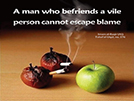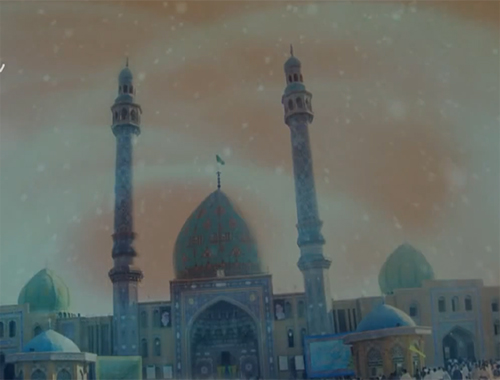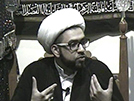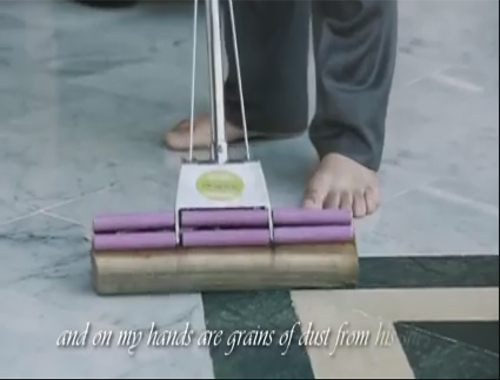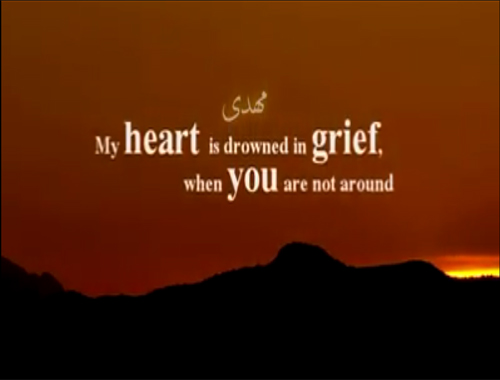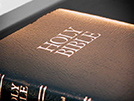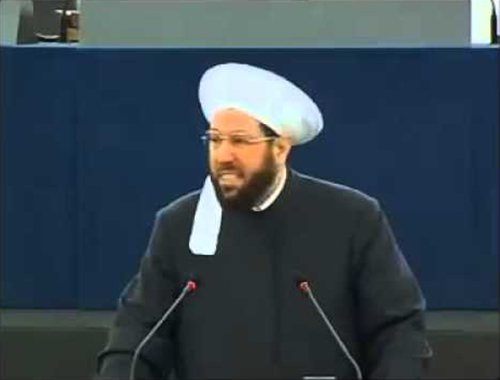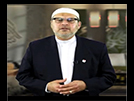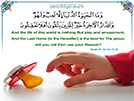Haste in Repaying Debt is Mustahab (Recommended)
- Details
- Hits: 1801
Haste in Repaying Debt is Mustahab (Recommended)
It has been made amply clear that not repaying debt, or returning the rights is HarÄm and a Greater sin. Depending upon the demand of the creditor and the ability of the debtor it becomes obligatory to repay the debt as soon as possible. Too much divine reward is promised for this.
Allamah NÅ«ri has quoted in his book DÄrus SalÄm an incident from the book Nurul UyÅ«n. He writes that Sayyid Hashmi, the pious and well known scholar said that he had taken a hundred dinars as loan from a Jew and promised to return them within a period of twenty days. “I returned half the amount to him and then did not see him for some days. People told me that he had gone to Baghdad. One night I dreamt that it was the Day of QiyÄma. I was summoned with the other people to account for my deeds. And Allah (S.w.T.), in His Infinite Mercy allowed me to enter Paradise. So I decided to cross the bridge of Sirat as soon as possible. However, the scream of Hell made me fearful. While I was crossing the bridge, all of a sudden my Jew creditor leapt up from below the Hell, engulfed in flames of fire and blocked my way and said, ‘Give me 50 Dinar and I’ll let you go.’ I pleaded to him that I had always been on the look out for him to repay the amount but was unable to find him. He said, ‘You are right, but till you repay me you will not be able to traverse this bridge of Sirat.’ I said, ‘I don’t have anything to give.’ So in return for his debt he asked me to allow him to put a finger on my body. I gave him the permission and he put his finger on my chest. Just as his finger touched my chest I screamed due to the burning pain and awoke from the dream. The place where the Jew had touched my chest was burnt too.” After this he opened his chest to the audience and they saw that there was a terrible wound on it. He said that he was still having it treated, but it did not seem to be cured. When the audience heard all this, they began to wail loudly.
It is also narrated in the 17th volume of BihÄr al-AnwÄr that the First Martyr (ShahÄ«d al-Awwal) quoted Ahmad bin Abil Jawzi that he said: “It was my wish to see Abu Sulaiman Durrani, who was considered to be a pious and a God-fearing person. Thus, I saw him in a dream after a year of his death. I asked as to how Allah (S.w.T.) had dealt with him?” He said, “O Ahmed! When I was passing through BÄbe SaghÄ«r one day, I saw a camel laden with hay and grass, I plucked a twig from this and do not remember whether I picked eenth with it or threw it away just like that. But a year has passed and I am still occupied in accounting for that twig.”
The below Qur’anic verse also supports this fact:
“O my son! Surely if it is the very weight of the grain of a mustard seed, even though it is in (the heart of) rock, or (high above) in the heaven or (deep down) in the earth, Allah will bring it (to light)...”
(Surah LuqmÄn 31:16)
Thus one who has done an iota of good will see it and one who does an iota of evil will see it on the Day of QiyÄma. In the letter to Muhammad bin Abi Bakr, ‘Ali (a.s.) says, “O creatures of Allah (S.w.T.)! Know that Allah (S.w.T.) the Gracious shall question you about your every small and big deed.” The following verse is a sufficient proof for this:
“Then one who does an iota of good shall see it and one who does an iota of evil shall see.”
(Surah ZilzÄl 99:7-8)
It is mentioned in BihÄr al-AnwÄr that Sayyid Hasan bin Sayyid ‘Ali Isfahani said: “At the time of my father’s demise I was studying in Najaf al-Ashraf. The responsibilities of my father fell upon some of my brothers. I was unaware of this fact. Seven months after the death of my father, my mother also passed away at Isfahan. Her last remains were brought to Najaf al-Ashraf. On one of those nights I saw my father in dream. I asked him that he had died in Isfahan so how did he reach Najaf? He said, “Yes! Though I died in Isfahan, I was given a place in Najaf.” I asked if mother was also with him?
“She is in Najaf, but in a different house,” he replied. So, I surmised that she was not given a position equal to my father. Then I asked him as to how he was. He said that though previously he was in severe pain now by the grace of Almighty he is comfortable. I was surprised that how a pious and religious person like him could suffer pain. He said that it was due to the fact that he was in debt to HÄj Raza the son of BabajÅ« alias NÄlband. “Though he had demanded the payment I was unable to repay it. I was suffering torture for this default.” I awoke with a start. I wrote to my brother, the legatee of my father and told him about my dream so that he will make enquiries if my father owed some money to such a person. My brother wrote back that he had gone through all the books of account but could not locate a creditor by that name.
Again I wrote to my brother to find this person and ask him directly if he was having a debt upon my deceased father. My brother replied after sometime and said that he had found that person and questioned him about my father’s debt. He was told that my father did owe him 18 tomÄns but except Allah (S.w.T.) no one knew about it. He said that after the death of father he had approached my brother and asked him if his name appeared in the list of my father’s creditors. When my brother told him that it was not so, he was perturbed as to how my father failed to note down his name among the creditors. Since he did not have any proof he did not see any way to acquire his money. Upon hearing this my brother offered him the amount of outstanding debt. But he refused to accept it. He said that he had already condoned the amount to my late father.
Imam Muhammad al-Baqir (a.s.) has said:
“Oppression is of Three types. One that Allah will not forgive, second which is He will forgive and lastly one which he will ‘take away’.
1. The oppression Allah will never forgive is Shirk.
2. The oppression that Allah forgives is one that a person does upon himself and it is a sin between that person and Allah.
3. The oppression that Allah ‘takes away’ is that one that a person does by not repaying his debts.
(Wasa’il ul-Shia)
The Holy Prophet (S) has remarked,
“One who is able to satisfy (please) his creditors will certainly enter Paradise without any delay in accounting. He will be in the Garden, in the company of Ismail (a.s.) the son of IbrahÄ«m (a.s.).”
(Mustadrak)
The Messenger of Allah (S) has also said,
The debt which is returned by the debtor is more superior to the worship of a thousand years and the emancipation of a thousand slaves and performing Hajj and Umrah a thousand times.”
(Mustadrak)
Prophet Muhammad (S) has also said,
“If someone restores a single dirham to its rightful owner, the Almighty Allah will save him from the fire of Hell and for each Daniq (1/6 of a DIrham) he will get rewards of a prophet and for each Dirham he will get a palace of Red Pearls (in Paradise).”
(Mustadrak)
He (S) has also said,
“Returning a right to its owner is better than fasting during the day and the prayers of the night. If a person returns a debt an angel cries out from below the Arsh: O servant (of Allah) from the time you began this good deed, Allah has forgiven all your past sins.

